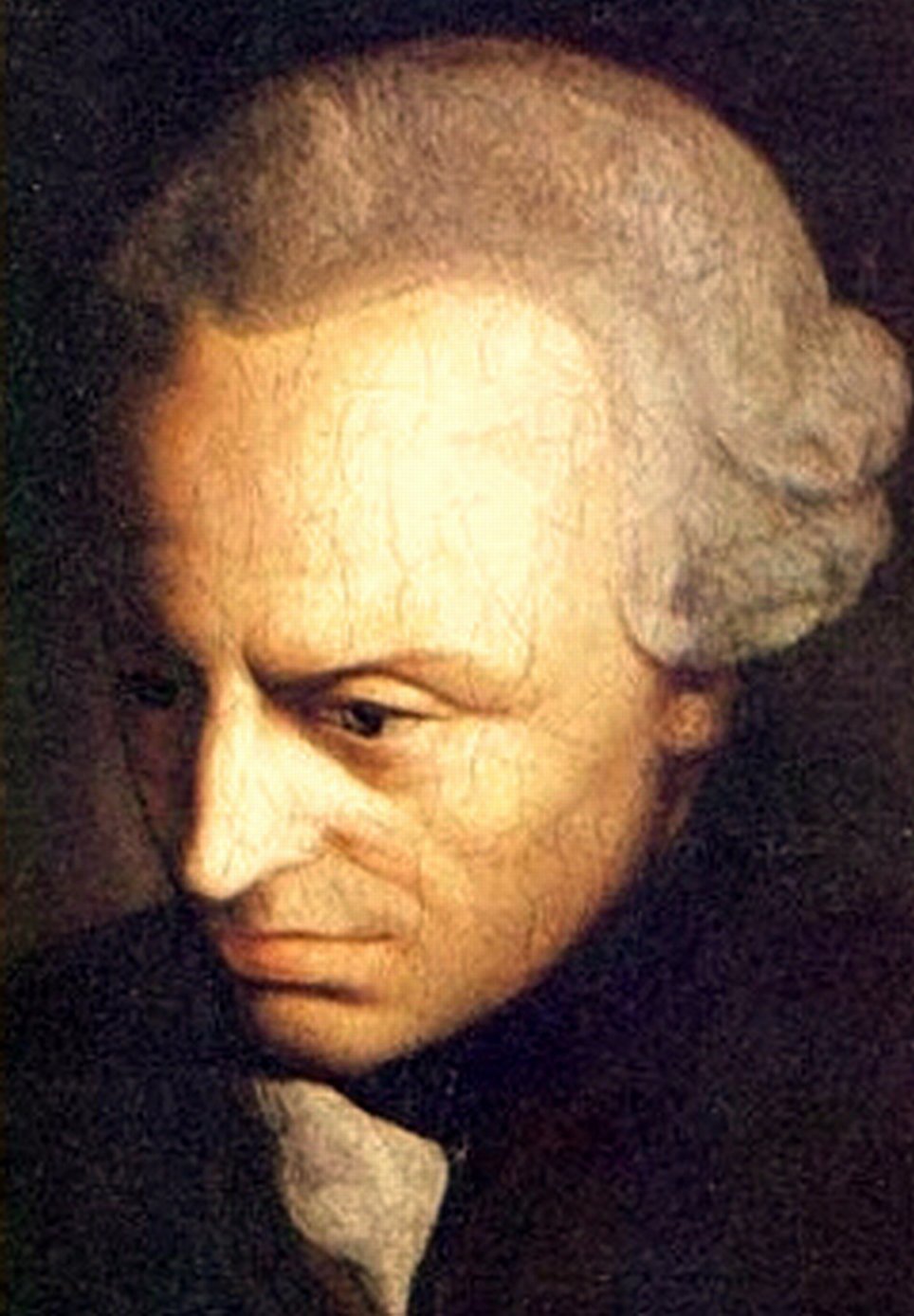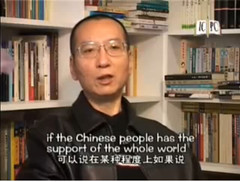Upon the time Liu Xiaobo won his Noble Peace Price last year, I knew nothing about him and his works. Due to my indifference towards politics, I also never had enough interest to get into know him as well, until I read his book Mist of Metaphysics (briefed as “Mist" below).
Lu Xun said "It's better to read Chinese books as less as possible. Actually it's better not to read them at all" (he used “books" as a general term, but I believe he specifically meant those books of moral teachings, which pretty much includes all traditional Chinese books). I happened to be such a person who doesn’t read many Chinese books, not because of Lu Xun said so, but simply because they never inspired me that much. But Liu Xiao Bo’s Mist is an exception - it was one of the best philosophy books I have ever read. And by reading it I gained an general impression about the author himself.
The book appears to be a history of western philosophy - it started from ancient Greek thoughts all the way to modern western thinkers. However what make it better than other history books of philosophy (that I have read) is that even though it was written chronologically, the whole book was coherently interwoven so the development of western thoughts were animatedly displayed. This development of western philosophy, under Liu Xiaobo’s interpretation, was a "organic life being", made by the contradictory between the desire of eternal “absolute” and the transitory reality. The whole history is a struggle through a never ending process of the pursuing and overthrowing this “absolute".
Whereas the “appearance” of this book is a history of thinking, it is virtually an highly original work of philosophy, in which Liu input lots of his own thoughts. Briefly speaking, Liu firmly disprove the existence of “absolute truth” (that’s why he called it “mist”), not only in the sense of metaphysics, but in any other sense or forms - such as “God”, "empiricism" or “science”. The whole western metaphysics originated the confidence about human reason, but this confidence is a plain delusion. Any declaration of "absolute" is self deceit, any faith on "absolute" is biased and subjective. From this perspective, art (especially music), by its most direct and essential way, is the only mean that human can experience life.
My impression of Liu Xiaobo from this book is that he is a highly intelligent, yet highly passionate person. He seemed to be greatly influenced by western modern philosophy, especially Existentialism, include modern literature and art. His grasp of the whole development of western thoughts is very impressive, and the points he made for different thinkers and philosophical schools seem to be spot on, and the way he put all these elements together was very inspiring, surpassed most of Chinese “professional” scholars ("pedants"?). So far I conclude Liu Xiaobo as a person contains three aspects: an absolutely independent thinker; an counter-rationalist and a pessimist.
First of all, Liu Xiaobo is an individual thinker. Just by this reason alone, he (or any independent thinkers) is a absolute rebel of his own culture (Chinese tradition). This is because any independent thinkers (a rational being) will not accept any orthodox ideas without personal examination, and this is due to a simple fact that “doubt” is the most essential aspect of reason. Like Liu said in the beginning of the book: “The history of thoughts is the history of questioning”(Mist, Introductory). Unfortunately, this "doubting spirit", is exactly what Chinese traditional ideology/thoughts repel - Chinese traditional ideology is all about “authority”.
As an independent thinker, Liu also gave out his definition of Human being - the ultimate subject of philosophy: “(human) life is first a sentient and animated system, second, it is a (self) consciousness of this system (reason).”(Liu Xiaobo‘s essay: About Reason) I personally absolute admire this interpretation. To me it is to say, only those who strongly possess both “sentience” and “reason” can have a real experience life and a clear conscious of it at the same time. Based on this understanding, Liu highly adores Kant - who was a combination of acute intuition and profound reason, and on the other hand, Liu despises Hegel - who lacked this sentient/animated system totally, and built his whole theory as a grandiloquent decoration over a lifeless body.
And from this understanding about life, Liu naturally criticized “Chinese people” on this very essential level: “if one’s sensation were oppressed totally (servility) , one cannot have rational spirit (reason). If one had, it would be a kind which is nothing more than a blind obedience…the “reason” that Chinese people possess is just a blindly obedience to Chinese traditional orthodoxy” (Liu Xiaobo‘s essay: “About Reason”).
Liu Xiaobo’s “attacks” to Chinese culture is thorough, non negotiable. He thinks during Chinese ancient history there were never anything called “knowledge” existed: “There were never any independent classes - such as Intellects or vendors - existed in ancient China. During the entire Chinese history, only two classes ever existed: rulers and the ruled.” (Mist, page 41) And I personally believe this is the same place that Liu stands on together with Lu Xun, who slashed Chinese culture by his literature works. From philosophical perspective, Liu might be a step further on the rational thoughts, but both are determined, and powerful.
Just like Lu Xun, Liu is a total individualist. He said:"I believe, one’s most valuable moment of life is not to declare to the world as such: ‘I am reprehensive of human', but as this: ‘I am a only one in the world. I do not represent anyone else but myself.’”(Mist, page322) (Here I could clear see the influence of Existentialism).
And just because Liu is not only a "rational being", but also a passionate and sentiment "life form", he is well aware of the limitation of our reason and stepped out of “absolute rationalism” firmly. He doesn’t believe that our reason can bring us to the “absolute truth” (simply it doesn‘t exist). He believes one can only achieve the full meaning of life by experiencing life “itself“ - that is to say through our animated instinct, or through ART: “Irrational state is not a state of animal. The higher level of irrational state is the life in its full bloom. Without this state there is no creativity. ... Life starts with music and ends with music.” (Mist, page51)
Liu’s thoughts resonates the anti-rationalist trend in modern western philosophy. In this book, he compared philosophy with art, said if we call the modern western art “pure art” because of it anti-rationalist tendency, we should as well call the modern western philosophy “pure philosophy”.
This anti-rational tendency made Liu Xiaobo somehow a little “religious”. Of course, he would not blindly accept any religion doctrines due to his rational mind, but he certainly has his insight on religion. He thinks religion is our instinct needs: “human, as a self conscious life, not only need to be satisfied with our current life, but also the next life (or eternal life)… to some extent, the victory of science over religions since Renaissance is just an illusion. In terms of the value of human being, religion is not seconded by science. Believing that science is omnipotent is a new religion. …” (Mist, page27)
Beside these two aspects I mentioned above (independent thinker and anti-rational tendency), Liu Xiaobo also is a pessimist. This is because of his insight on the transient nature of human being. The consciousness of this transient nature leads human to transcends, and at the same time human also conscious the impossibility of such will, thus tragedy is inevitable: “all creativities human made are for one goal: transcendence. But the limited existence cannot creates any such kinds. To human, the so call “transcendence”, only exists in will, eagerness and illusion. " (Mist, page 6)
However, this “pessimism” is not in a mundane sense, but in philosophical sense. This is not the kind of attitude of being sad/complaining, but a confrontation to the reality, an embrace to the tragedy of life. This kind of pessimists, do not need any delusion (such as “absolute”, “God”) to satisfy his/her survival need. And from this perspective, I think Liu Xiaobo again shares Lu Xun’s pessimist spirit.
These are my “impression” on Liu Xiaobo based on the book. The book has over 400 pages, briefly covers over 2000 thousands history of western philosophy. Liu wrote it during his early 30s, and it took him less than half year long. It truly was a work of inspiration. In my opinion, Liu Xiaobo deserves to be recognized as a genius thinker.
I do not know what kind of developments Liu Xiaobo made on his thoughts over the course of twenty years after finishing this book, but I know he once said (despite of his passionate and sharp criticism): “I have no enemy“. However this is just what he said from his perspective. From the perspective of the “nation”, the Chinese government, he is the most dangerous enemy they ever had, and that’s why they put him in prison (I just found the currently is the third time. The first time was after 6.4 students movement 1989). I only hope, Liu Xiaobo has not been enduring too much in prison. I also hope, after he is released in future, he would choose not to live in that country, because that piece of lifeless land (or any lifeless land) is not worth any of his sacrifice (or of anyone who loves freedom).









